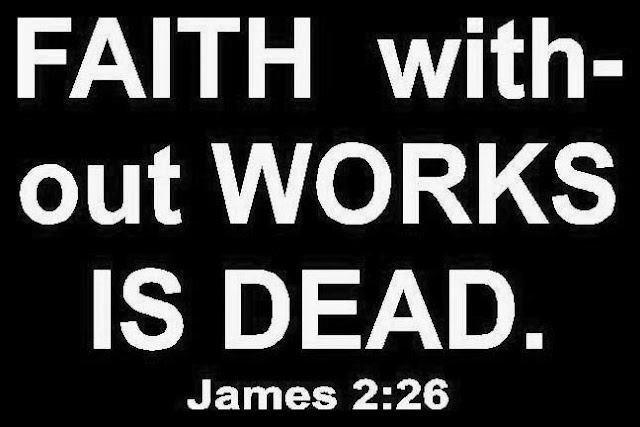Chapter 19: 1-10 Zacchaeus
the Tax Collector
In the Gospel of Luke, Jesus uses many parables to
illustrate his Good news.
“The Parable of the Pharisee and the Tax Collector” in
Luke 18: 9-14 is my favorite where Jesus made comparison between the Pharisee
and the Tax Collector. The Pharisee was bragging or boasting about his righteousness…
thanking God that he was “not like the rest of the humanity – greedy,
dishonest, adulterous, even like this tax collector, fast twice a week, pay
tithes.“ While the tax collector stood off at a distance and would not raise
his eyes to heaven but beat his breast and prayed “O God, be merciful to me a
sinner.”
In the Gospel of Luke 18:18-25 A Rich Official
encountered Jesus and asked “What must I do to inherit eternal life?” After the
rich official told Jesus that he had kept his commandments since his youth, Jesus
said to this rich official, “There is still one thing left for you: sell
all that you have and distribute it to the poor, and you will have a treasure
in heaven. Then come a follow me.” But when he heard of this he became
quite sad, for he was very rich. Jesus looked at him and said, ”How
hard it is for those who have wealth to enter the kingdom of God!”
Climbing a
Sycamore tree – a humble act for the Chief Tax Collector
According to the Gospel of Luke, it was not long after
he told the above parable and encountered the Rich Official that Zacchaeus the
Chief Tax Collector of Jericho who was also a wealthy man encountered Jesus.
Zacchaeus probably has heard about Jesus and his teaching. He was seeking to
see who Jesus was but he was short so he climbed a sycamore tree in order to
see Jesus. At this juncture, I want you to try imagining that someone short,
very wealthy (humbling himself) by climbing a tree in order to meet Jesus. That
act of humbleness perhaps caught the eyes of Jesus. And, Jesus asked him to
come down quickly, for he must stay at his house.
Can you imagine what an honor it must have been for this
little man Zacchaeus, a chief Tax collector for Jesus to stay at his house? His is a kind of
smallness that is far more devastating than being short. His smallness emerges
from his terrible self-image resulting from others’ attitudes toward him. Though a member of a group that was widely despised,
Zacchaeus appears in today’s story as a fundamentally honest and humble man who
seeks the truth and is open to finding it where he can, even if it means
climbing a sycamore tree in a crowd, just to catch a glimpse of Jesus.
Give half of his possessions to the poor, those that
I have cheated, I shall repay it 4 times over – “Zacchaeus acknowledges that he
is a sinner needing the mercy of God”
Zacchaeus
provides a contrast to the rich man of Luke 18:18-23 who cannot detach himself
from his material possessions to become a follower of Jesus. Zacchaeus,
according to Luke, exemplifies the proper attitude toward wealth: He promises
to give half of his possessions to the poor, and consequently is the recipient
of salvation.
We have much to learn from Zacchaeus - His humility,
his recognition of his sin, his act of reparation.
“O God, be
merciful to me a sinner.”
Transformation
In
his Letter to Priests written for Holy Thursday 2002
(Nos. 5-6), the Servant of God Pope John Paul II wrote these words about
today’s delightful Gospel story:
Everything
that happens to him (Zacchaeus) is amazing. If there had not been, at a certain
point, the ‘surprise’ of Christ looking up at him, perhaps he would have
remained a silent spectator of the Lord moving through the streets of Jericho.
Jesus would have passed by, not into, his life. Zacchaeus had no idea that the
curiosity which had prompted him to do such an unusual thing was already the
fruit of a mercy which had preceded him, attracted him and was about to change
him in the depths of his heart. [...]
Luke’s
account is remarkable for the tone of the language: Everything is so personal,
so tactful, so affectionate! Not only is the text filled with humanity; it
suggests insistence, an urgency to which Jesus gives voice as the one offering
the definitive revelation of God’s mercy. He says: ‘I must stay at your house,’
or to translate even more literally: ‘I need to stay at your house’ (v 5).
Following the mysterious road map which the Father has laid out for him, Jesus
runs into Zacchaeus along the way. He pauses near him as if the meeting had
been planned from the beginning. Despite all the murmuring of human malice, the
home of this sinner is about to become a place of revelation, the scene of a
miracle of mercy. True, this will not happen if Zacchaeus does not free his
heart from the ligatures of egoism and from his unjust and fraudulent ways. But
mercy has already come to him as a gratuitous and overflowing gift. Mercy has preceded
him! [...]
This
is what happens in the case of Zacchaeus. Aware that he is now being treated as
a ‘son,’ he begins to think and act like a son, and this he shows in the way he
rediscovers his brothers and sisters. Beneath the loving gaze of Christ, the
heart of Zacchaeus warms to love of neighbor. From a feeling of isolation,
which had led him to enrich himself without caring about what others had to
suffer, he moves to an attitude of sharing. This is expressed in a genuine
‘division’ of his wealth: ‘half of my goods to the poor.’ The injustice done to
others by his fraudulent behavior is atoned for by a fourfold restitution: “If
I have defrauded any one of anything, I restore it fourfold” (v 8). And it is
only at this point that the love of God achieves its purpose, and salvation is
accomplished: ‘Today salvation has come to this house’ (v 9).





